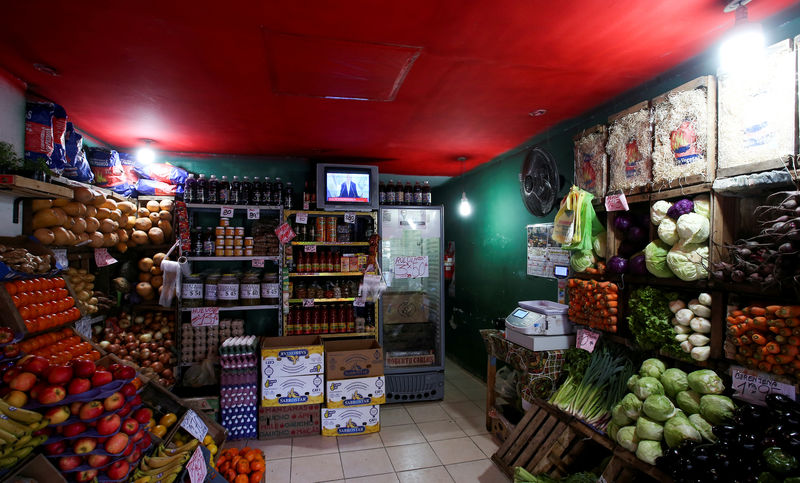By Walter Bianchi and Cassandra Garrison
BUENOS AIRES (Reuters) - Argentine markets on Thursday bucked a dismal three-day losing streak on signs of political compromise to tackle a dizzying economic crisis and a new central bank measure to prop up a currency that had lost around a quarter of its value.
The peso began to fall on Monday after presidential candidate Alberto Fernandez, running alongside former leftist President Cristina Fernandez de Kirchner, unexpectedly trounced center-right President Mauricio Macri, whose austerity measures turned off voters in Sunday's primary vote.
The result prompted fears of a return to protectionist policies and the end of free-market economic reforms should Fernandez triumph in October's election, as now seems likely.
There had been few signs of rapprochement between Macri and Fernandez in the immediate aftermath of the vote, but as markets continued to tumble on Wednesday, they spoke on the phone, agreeing to try to calm volatility. Fernandez later said his economic plans did not contemplate a debt default.
The central bank also announced on Thursday that from Aug. 20 private banks would be barred from having total dollar holdings exceeding 5 percent - essentially prompting them to sell U.S. currency if their inventory of greenbacks exceeds that level.
The plan would unleash liquidity into the market without the central bank having to tap its reserves in dollar auctions, a source with knowledge of the plan said. The source added it was likely banks had already started selling dollars to comply.
"The measure adopted by the central bank seems to have had an effect... and managed to slowly cut the successive rises in the value of the dollar," said Gustavo Quintana of brokerage PR Corredores de Cambio.
Thursday was the first day this week that the central bank did not undertake dollar auctions from its own reserves to prop up the peso. Since Sunday's vote, the central bank has auctioned a total of $503 million.
The peso
Argentina, Latin America's No. 3 economy, is no stranger to financial crises. But its latest lurch comes amid widespread volatility and fears of a global recession sparked by the trade war between China and the United States, and ongoing protests in Hong Kong.
Brazil's Economy Minister Paulo Guedes said on Thursday that his country would pull out of the Mercosur trade bloc if Fernandez became president and closed Argentina's economy. Fernandez on Monday dubbed Brazil's far-right President Jair Bolsonaro "racist, misogynist and violent."
Macri has announced a series of welfare subsidies and tax cuts for lower-income workers since Sunday's vote, in an awkward about-turn for a president who took office in 2015 vowing to slash public subsidies and to correct what he called years of leftist economic mismanagement.
Macri promised to raise the minimum wage, temporarily freeze gasoline prices and increase the income tax bracket floor by 20%. On Thursday, he announced plans to help people with inflation-linked mortgages.

The government still has breathing space for more dollar auctions if the peso begins to fall again. The central bank has about $66 billion (54.50 billion pounds) in reserves, of which about $20 billion are free resources that can be used to pay debt and stabilize the peso, according to an Argentine government official.